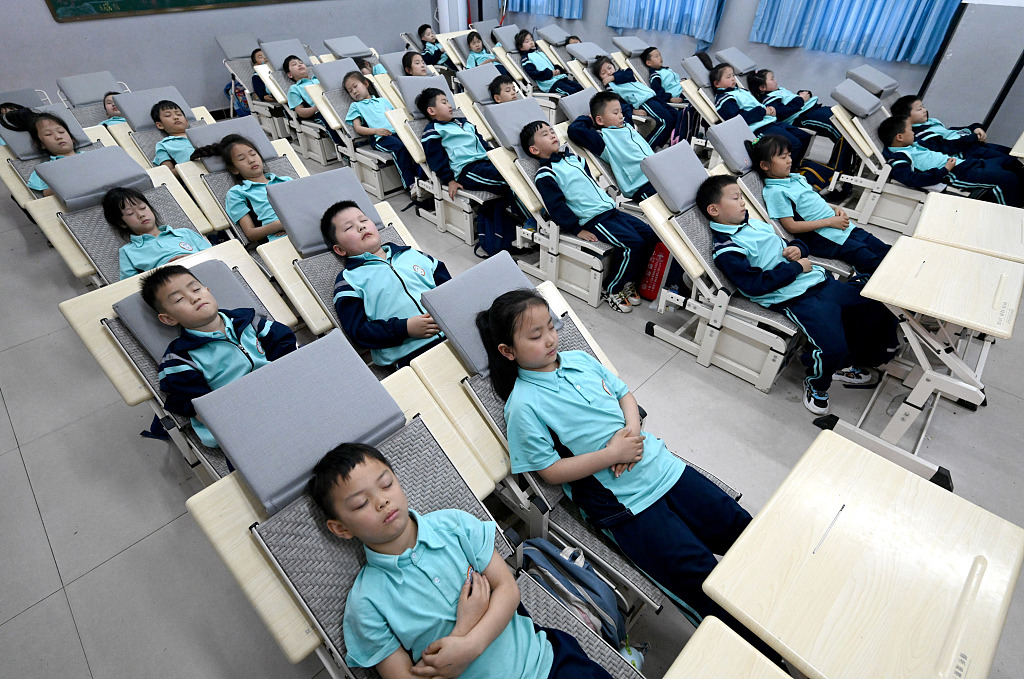More youth affected by sleep troubles
Academic pressures, excessive use of smartphones are culprits, experts say


An increasing number of teenagers and young adults are having problems sleeping due to intense academic pressure or excessive smartphone use, as health experts call for families and schools to attach greater significance to the sleep quality among the youth.
Lu Lin, a renowned psychologist and an academician at the Chinese Academy of Sciences, said that while sleep disorders are believed to predominantly affect middle-aged adults and the elderly, more and more youngsters said they suffer from poor sleep, have their circadian rhythm totally disrupted and even need to take sleeping pills.
Data shows that insomnia, breathing problems during sleep and other sleep disorders affect about 36 percent of seniors and 26 percent of adolescents in China, according to Lu, who is also president of Peking University Sixth Hospital, an institution specializing in psychiatric research and the clinical treatment of mental health.
Sleep plays an essential role in promoting the normal development of the mind and body, and the lack of sleep could impair the cognitive capacities of children and teenagers, including their memory and focus, and diminish their immune systems.
Citing goals laid out in a health promotion plan released by the National Health Commission, Lu said that children and teenagers should have at least eight hours of sleep per day.
"However, I have young patients who only sleep five hours a day. They go to bed after the last class finishes at 11 pm and wake up as early as 5:30 am for an early workout," he said during an event held over the weekend ahead of this year's World Sleep Day on Thursday.
Lu said that a large number of children cannot manage their schedules and begin exhibiting symptoms such as insomnia, anxiety and even health issues that can affect them for the rest of their lives.
As society pays more attention to the mental health of adolescents, Lu said that it is important to improve awareness of the significance of sleep among families and schools and persuade them to avoid prioritizing school grades over sleep and health.
According to a report released by the Chinese Sleep Research Society last week, more than half of survey participants go to bed after midnight, and 13 percent do so after 2 am.
People born after 2000 fall asleep on average at 12:30 am, compared with 11:02 pm among people born in the 1970s.
The report points out that 55 percent of college students use their phones for over eight hours per day, and 52 percent of them fall asleep after midnight.
"College students are found to spend too much time on their phones and have a difficult time falling asleep," said Huang Zhili, chairman of the Chinese Sleep Research Society.
"More attention should be paid to the sleep hygiene of college students and helping them develop a healthy lifestyle."
Liu Yanjiao, from the psychiatry department at Guang'anmen Hospital, suggested a nap of around 40 minutes during the day for anyone who slept late or experienced disrupted sleep patterns the night before.
He also advised against young people relying on sleeping pills because of potential risks including drug addiction and psychological dependence.
- Zhengzhou issues flood alert, orders closures amid heavy rainfall
- PLA releases footage of drones hunting 'hostile warship'
- Twin pandas celebrate fourth birthday in Chongqing
- Digital technology strengthens dam safety in Xinjiang
- Hunan's emerald terraces offer cool summer escape
- China completes first landing, takeoff test of manned lunar lander





































